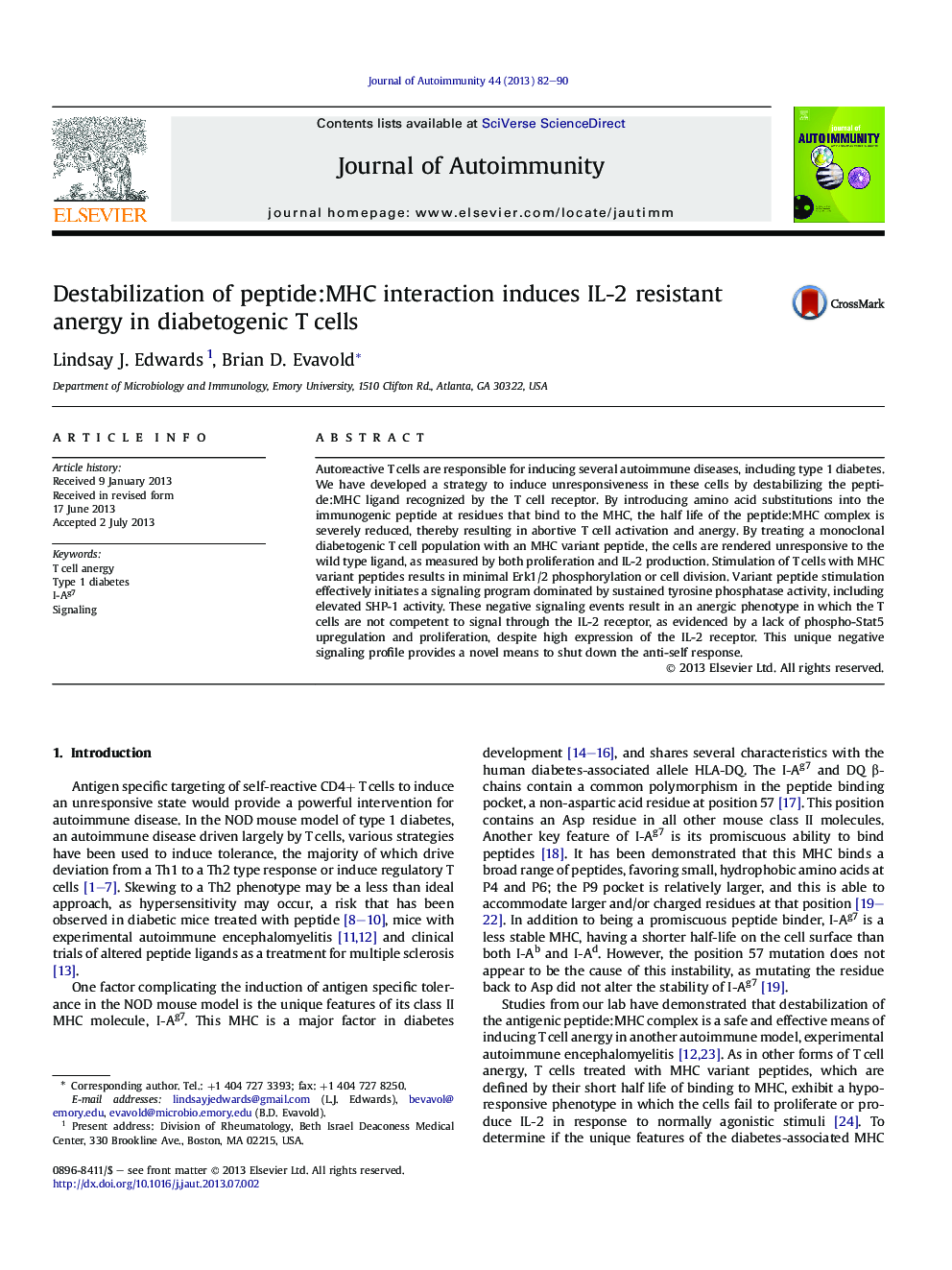| کد مقاله | کد نشریه | سال انتشار | مقاله انگلیسی | نسخه تمام متن |
|---|---|---|---|---|
| 6119340 | 1592304 | 2013 | 9 صفحه PDF | دانلود رایگان |
عنوان انگلیسی مقاله ISI
Destabilization of peptide:MHC interaction induces IL-2 resistant anergy in diabetogenic T cells
دانلود مقاله + سفارش ترجمه
دانلود مقاله ISI انگلیسی
رایگان برای ایرانیان
موضوعات مرتبط
علوم زیستی و بیوفناوری
ایمنی شناسی و میکروب شناسی
ایمونولوژی
پیش نمایش صفحه اول مقاله

چکیده انگلیسی
Autoreactive T cells are responsible for inducing several autoimmune diseases, including type 1 diabetes. We have developed a strategy to induce unresponsiveness in these cells by destabilizing the peptide:MHC ligand recognized by the T cell receptor. By introducing amino acid substitutions into the immunogenic peptide at residues that bind to the MHC, the half life of the peptide:MHC complex is severely reduced, thereby resulting in abortive T cell activation and anergy. By treating a monoclonal diabetogenic T cell population with an MHC variant peptide, the cells are rendered unresponsive to the wild type ligand, as measured by both proliferation and IL-2 production. Stimulation of T cells with MHC variant peptides results in minimal Erk1/2 phosphorylation or cell division. Variant peptide stimulation effectively initiates a signaling program dominated by sustained tyrosine phosphatase activity, including elevated SHP-1 activity. These negative signaling events result in an anergic phenotype in which the T cells are not competent to signal through the IL-2 receptor, as evidenced by a lack of phospho-Stat5 upregulation and proliferation, despite high expression of the IL-2 receptor. This unique negative signaling profile provides a novel means to shut down the anti-self response.
ناشر
Database: Elsevier - ScienceDirect (ساینس دایرکت)
Journal: Journal of Autoimmunity - Volume 44, August 2013, Pages 82-90
Journal: Journal of Autoimmunity - Volume 44, August 2013, Pages 82-90
نویسندگان
Lindsay J. Edwards, Brian D. Evavold,